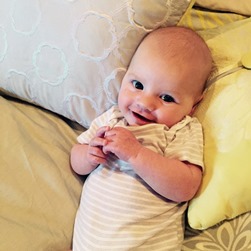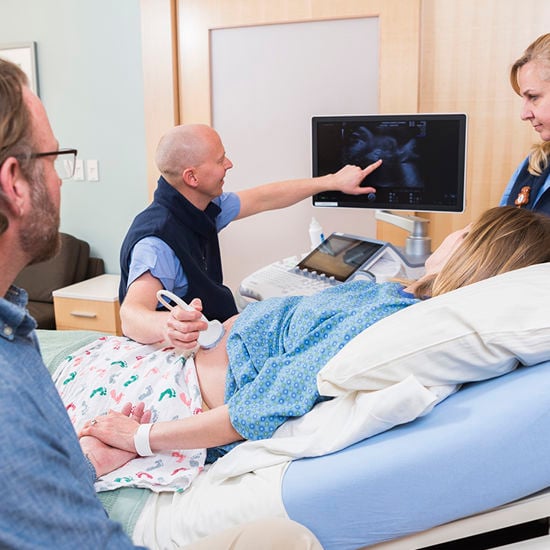- Doctors & Departments
-
Conditions & Advice
- Overview
- Conditions and Symptoms
- Symptom Checker
- Parent Resources
- The Connection Journey
- Calm A Crying Baby
- Sports Articles
- Dosage Tables
- Baby Guide
-
Your Visit
- Overview
- Prepare for Your Visit
- Your Overnight Stay
- Send a Cheer Card
- Family and Patient Resources
- Patient Cost Estimate
- Insurance and Financial Resources
- Online Bill Pay
- Medical Records
- Policies and Procedures
- We Ask Because We Care
Click to find the locations nearest youFind locations by region
See all locations -
Community
- Overview
- Addressing the Youth Mental Health Crisis
- Calendar of Events
- Child Health Advocacy
- Community Health
- Community Partners
- Corporate Relations
- Global Health
- Patient Advocacy
- Patient Stories
- Pediatric Affiliations
- Support Children’s Colorado
- Specialty Outreach Clinics
Your Support Matters
Upcoming Events
Child Life 101
Wednesday, June 12, 2024Join us to learn about the work of a child life specialist, including...
-
Research & Innovation
- Overview
- Pediatric Clinical Trials
- Q: Pediatric Health Advances
- Discoveries and Milestones
- Training and Internships
- Academic Affiliation
- Investigator Resources
- Funding Opportunities
- Center For Innovation
- Support Our Research
- Research Areas

It starts with a Q:
For the latest cutting-edge research, innovative collaborations and remarkable discoveries in child health, read stories from across all our areas of study in Q: Advances and Answers in Pediatric Health.


Jack: One Family's Journey with Congenital Diaphragmatic Hernia

Driving to our first ultrasound appointment to learn the sex of our baby, my husband Steve asked if I was nervous. I remember thinking it was a funny question: I didn't feel nervous at all. When we found out I was pregnant, we were thrilled: we owned a home, had good jobs; everything was exactly as we had planned. And as an OB nurse, I had seen hundreds of healthy babies born. I truly believed that nothing would ever be wrong with our baby. I was mistaken.
At 15 weeks, we found out we were having a boy – who we’d name Jack – and were told that his heart was on the wrong side of his body. The experience was like a scene from a dramatic movie, in which the ultrasound techs keep looking and looking at one area, and you start to get nervous because you know they see something – but no one is saying anything. A nurse came into the room to look, and said, "Hmm, uh huh. I see it, too." Finally, the doctor entered and the mood turned even more serious. There was an abnormality with Jack’s development, the doctor told us, and we were referred to Children's Hospital Colorado for a more in-depth look.
As local residents, we knew of the hospital’s strong reputation, so we felt confident prior to the echocardiogram (ECHO) of Jack’s heart. During the ECHO, the fetal cardiology team saw a perfectly normal heart – it was just on the wrong side of his tiny, developing body. Having a medical background, I found that to be odd, though my husband was happy to accept that we had a one-in-a-million baby, a ninja, a special right-sided heart baby. But the real bad news was yet to come.
Jack is diagnosed with congenital diaphragmatic hernia
We followed up a few weeks later with my regular OB for another ultrasound. Again they looked and looked, and called in others to look. The same awful feeling emerged and we knew that there was something else they must be seeing. The doctor told us that Jack had a herniated diaphragm (a condition known as a congenital diaphragmatic hernia, or CDH) and that his small and large intestines had entered his chest cavity – in effect pushing his heart into developing in the wrong position. At that moment, our entire lives changed.
We were both in shock and fearful. How could this even be happening to us? I was a nurse who cared for babies and pregnant women. What were the odds?
Three days later, we had our first appointment with the Colorado Fetal Care Center at Children's Colorado. The team is a part of a partnership between Children’s Colorado and the University of Colorado. There, I had an MRI, another ECHO, blood work, an amniocentesis and an extensive ultrasound in which every area of our baby was measured and examined. After an exhaustive day, we met with the physicians and surgeons.
The team had reviewed all the imaging and told us what they saw. His congenital diaphragmatic hernia was located on his left side, contained spleen and bowel, and it appeared that his internal organs were able to slide up and down. It was a very positive prognosis, as the physicians felt confident they were able to repair the problem. I can say we did leave feeling better: Everyone was so knowledgeable and personable, we felt a lot more at ease after that appointment. I didn't feel like I would be just another patient; they truly cared about the outcome for Jack.
As a nurse, I was able to recognize good care, attention to detail and hand washing by all involved as they kept a tidy work space (aka: his crib). I also noticed how much respect the team had for respect for each other. I wish I hadn’t understood so much of the medical side because it hit too close to home. But once I returned to work, I discovered that this journey made me a better nurse – I was and continue to be more compassionate with my patients because I can relate more closely with each of their experiences.
Facing our son’s congenital diaphragmatic hernia
As my pregnancy progressed, I continued with regular weekly OB appointments for ultrasounds, non-stress tests (NSTs) and biophysical profiles. Some weeks things would be great with no news, and everything was the same. Other weeks we wouldn't pass our NST, or I had high blood pressure. Then one week they told me that Jack’s stomach was in his chest cavity, but that the liver remained in place. We were repeatedly told that as long as the liver stayed down, we had a great prognosis. I became anxious every Monday night, knowing that each Tuesday was another appointment.
I would pray that they would be wrong about everything; every single week. My husband was so strong and positive the whole time. I have to say ignorance is bliss; I thankfully did not research congenital diaphragmatic hernia online too much. I was already familiar with the outcomes and with the anomaly, but I didn’t want to know too many of the potential problems. I had to focus on my baby; I couldn't consider what had happened to every other baby with this condition. I needed to trust what the doctors and surgeons told me.
When the time came, we toured the Maternal Fetal Care Unit at the Colorado Fetal Care Center at Children’s Colorado, and the Neonatal Intensive Care Unit (NICU), as we knew we would be delivering at the hospital. It was helpful for us to have the chance to visit the facility before we had our baby. From the moment we checked in for my induction, we were treated with phenomenal care. All the nurses were respectful and knowledgeable. I remember pushing while a team of 15 to 20 people waited in the hallway to care for my child as soon as he was delivered.
Afterward, my sister asked if that was a lot of pressure knowing that so many people were waiting for me to have my baby so they could get to work. In reality, it was reassuring, knowing that so many trained professionals were there for our child.
Meeting Jack for the first time
Once our son was stabilized, I was able to see him before he was taken to the NICU. My husband was then able to follow him to the NICU and stay with him through the night. Our nurse that first night, Julie, untangled all his IV lines and helped my husband make sense of the 17 or so pumps.
On the fourth day of Jack's life, Ken Liechty,MD, and John Kinsella,MD, completed his repair. We were told to expect a one-step-forward, two-steps-back type of recovery. But each day he got stronger, and more pumps disappeared from his bedside. We developed relationships with the nurses and were very confident in our primary team. The entire time we felt that we were not another case, but that they cared for us as a family.
To showcase just how much their care extended, one of our nurses even came to our home after we were discharged to babysit, so we could go out to dinner for my husband's birthday. We were so nervous leaving our son and she knew we wouldn’t have gone unless we had an experienced caregiver there. You do not find care like that at every facility. The interdisciplinary committee of surgeons, nurse practitioners, nurses, repertory and cardiology was so solid and reassuring. In total, we were in the hospital for 28 days. The team became a sort of second family.
A happy ending for the Atkinsons
Jack is now five months old. He is rolling over, laughing, smiling and eating like a champ. He is perfect, healthy and truly the best thing we have ever done.
We are one of the lucky ones. Our story has a happy ending, thanks to the team at Children’s Colorado.

Would you like a second opinion?
If you have received a prenatal diagnosis, are considering treatment options or just want to feel more confident about your treatment plan, our fetal care experts are here to help.
Request a second opinion from our Colorado Fetal Care Center



 720-777-0123
720-777-0123



